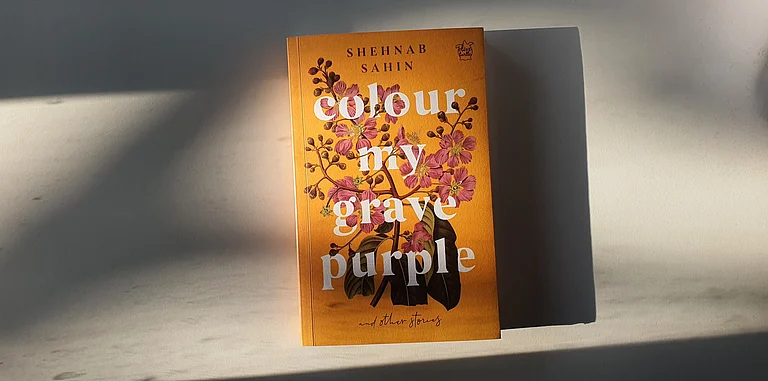Wong Shu Chin was in his early twenties when he decided to embark on the longest journey of his life. On a cold January morning in 1939, along with his fellowmen, Wong Shu began to cross the 14,500km distance from China to reach the Port of Kolkata in British India. His motive was to become a trader of Chinese goods and use his rare craftsmanship to start a business in the then British capital where many Chinese people were engaged as dockworkers since the late 18th century.
Arrival in British India
Wong Shu reached Kolkata during the outbreak of World War II. However the British officials with whom he was in touch with asked him to make another journey of over 1,500 km. They sent him to Assam, a remote province in India’s northeast corner where the Britishers first experimented with tea plantations. From 1838, the British officials started bringing in skilled and unskilled Chinese labourers to work in the newly set up tea gardens of eastern Assam in separate batches.
By the time Wong Shu reached Assam, a small Chinese community was formed already in Assam, mostly working as plantation workers, carpenters, machine operators in tea gardens etc. The major settlement of the Chinese people in Assam was in a town in Tinsukia district, in close proximity to the growing tea gardens set up by the British. It was named as Makum, which means “Meeting Point" in Chinese. In 1942, Wong Shu started a business of Chinese goods. When sawmills came to the scene, he opened one along the Makum Bazaar Road in 1952.
However the 1962 Indo-China war, fought for a month along the Mac Mohan Line across the Tibetan border from October 20 to November 20, changed the lives of Wong Shu and thousands of other Chinese people living in Makum.
Though the Chinese forces announced a ceasefire after the Indian Army retreated from the Kemeng sector of North East Frontier Agency ( now Arunachal Pradesh), the situation of the Indian-Chinese community living for decades and some for more than a century in India became the victim of suspicion by the Indian authorities.
War-time psychology: How lives changed
Thousands of people of Chinese origin living in Calcutta, Assam, Bombay, Darjeeling, Kalingpong, Jamshedpur etc for decades were detained without trial as per the Defence of India Act, 1962. As per reports around 3,000 were kept in an internment camp in Deoli of Rajasthan amidst the growing anti-Chinese sentiment that the war created.
“After the war took place, the saw-mill of my grandfather got closed. Hundreds of Chinese were detained by the police. My grandfather's family was sent to the Deoli camp. They spent four years there till 1966.” said Wang Sheng Shu, the grandson of Wong Shu.
Wang, now in his sixties, was referring to one of the hardest times that the Chinese people in India faced post the war. Wang now runs the famous Hong Kong Restaurant set up by his grandfather after returning to Makum from Deoli camp.
“Before the war, there were more than 5000 people of Chinese-origin who used to live in Makum. After the war, the number dropped drastically. Today we only have five-six families`”, he added.
Noted Assamese writer and Sahitya Akademi Award recipient, Dr. Rita Chowdhury, in her novel Makam, based on true events, deals with this dark chapter of the Assamese-Chinese community. Her novel talks about the assimilation of Chinese immigrants into Assamese society through marriage and friendship and how suddenly the war tore them apart. She talks about the suspicion upon Chinese people by the Indian Authority and their subsequent arrests, deportation and the struggle of those who continued to live in Assam and rebuilt their lives.
Talking to Outlook, Dr. Choudhury said, “There was a very close relationship between the people of Chinese origin and the local population. They married local girls and not only for one generation, but for three-four generations. Their mothers, grandmothers and their wives were local. They didn't know the Chinese language and became a part of Indian society or the greater Assamese society. My novel talks about how slowly people started hating them, distributing them and the kind of war-time psychology that gripped and how people started living away from the Chinese community out of rage.”
Choudhury through her novel tells how suddenly during the last day of the war, Chinese people were gheraoed, arrested, and sent 2,000-km away on a train to a detention centre in the Deoli village of Rajasthan. Family members who were not together at that time could not get on the train and got separated.
“They were given the wrong impression that they would be shifted only for three-four days to a safer place, but were actually taken to different jails, especially to Deoli internment camp. From the camp most of them were sent back to China while many of their families were left in India," says Dr. Choudhury.
Tales of separations and longing
In May 2015, ‘China-Town Days’ - the English version of ‘Makam’ was released by Leong Linchi alias Pramila Das, a lady of Chinese origin living in Tinsukia district who got separated from her parents when they were deported after the 1962 war and never met her parents since then.
Leong Linchi, now 65, recalls the memory of how her parents were taken by the security forces and sent to Deoli while she was left behind in Assam.
Talking to Outlook, Linchi said, “My father was first caught during the war and then taken to Rajasthan along with many other people. Then my mother left for Rajasthan to see my father after a few months. She decided to stay in the camp with my father. One day my maternal aunt, who was released from a jail recently after the war, took the initiative of taking me and two of my sisters to my parents in a train to Deoli to unite us with our parents. It was too early in the morning and it was dark. My sisters and my aunt could get into the train, but the train started moving before I could get into it.”
Leong Linchi, six-years old then, stayed back in Tinsukia. She was raised by one of her aunts.
In 1964, India sent most of the detainees to China as the latter sent ships to bring them back. During that period, many children like Linchi got separated from their parents who were not in the camp with them. After getting back to China, Linchi’s family started living in the Guangzhou province of China.
It took Linchi 53 years to unite with her parents who were deported to China.
“I used to remember my father Leong as a young man when I last saw him in 1962. When I met them both my parents became pretty old. After meeting me, my father said that now that he could see me in his lifetime, he can die in peace.”
After spending a month with her family in China, Leong Linchi came back to her birth place Makum to be with her Assamese husband and her children. Leong Kokhoi, father of Leong Linchi passed away this year.
India freed the remaining detainees in 1967. Many decided to leave India and shift to other places such as Canada, Australia, Hong Kong etc. Many Chinese families came back to Tinsukia to rebuild their lives from scratch as their homes and businesses were taken over by locals.






















